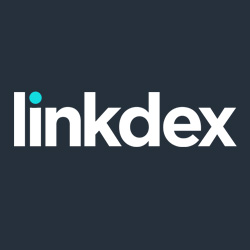With Penguin, and earlier this year Panda, both now incorporated in the core algorithm, 2016 has consolidated many developments in search. We took the opportunity to catch-up with Eric Enge to discuss recent developments and future trends in SEO.
What would you say have been the most significant developments in SEO over the past year?
 Just under a year ago, we saw the release of Google’s RankBrain algorithm. This was our first confirmation that machine learning is in active use as part of the core algorithm at Google.
Just under a year ago, we saw the release of Google’s RankBrain algorithm. This was our first confirmation that machine learning is in active use as part of the core algorithm at Google.
Unfortunately, it has led many to believe that Google is completely machine-learning driven, and it’s just not that way. Implementing a machine-learning algorithm is incredibly complex. With that being said, Google will probably continue to find ways to take advantage of machine-learning.
The release of AMP has also been a very big deal. We did some testing on the Stone Temple site, and we saw a 71% decrease in page size, with our score in Google’s Page Speed Insights tools rising from 42 to 88. That’s impressive!
I’ll go on the record here and state that I think that AMP is going to be massive. The idea of radically speeding up web pages has a lot of supporters — and it should. That’s why so many companies are experimenting with it.
In the next 6 to 12 months, you’ll start to see companies using AMP for e‑commerce pages, and even some that will use AMP as the base version of their page, not just for mobile devices.
The release of Penguin is also a huge deal, and I’ll talk about that more in response to the next question.
Penguin 4.0 is now part of Google’s core algorithm. Do you think the changes should be welcomed by the industry?
Let’s start with a definition: the new Penguin no longer penalizes sites rankings because of links. Penguin simply discounts the bad links it finds. However, what I also expect is that the new Penguin also will alert Google to sites that are doing a LOT of bad link building, and flag those for manual review. So one outcome might be more sites receiving manual penalties.
Overall, I think that Penguin is great for the industry. Now, even if a site receives a manual penalty, a site owner simply has to fix the bad links and file a reconsideration request. This process is a lot easier to deal with than with the old Penguin (because it was updated so infrequently).
A final point — this shift in Google’s approach is also an indicator that Google’s confidence in detection of bad links has grown considerably.
How can businesses evolve and adapt to changes and developments in search and digital?
I’d focus on recognizing the abundance of opportunities that exist in the market today. What are the proactive things you can do to build your business to the next level?
For example, content marketing:
Content marketing is hot. You can start aggressively producing very high-quality content that your prospective customer base wants and desires. Doing this effectively can provide you with a major edge over your competition, both in term of reputation and visibility and helping drive your SEO.
or AMP:
AMP is another huge opportunity. The idea of dramatically speeding up your site is an attractive one, and if you do it with your site, you’ll have a far superior user experience than your competitors who don’t implement AMP.
or Facebook:
Another opportunity area is Facebook. Facebook has a huge audience that’s continuing to grow, and it also has a fantastic advertising platform that allows you to do amazing custom targeting of your ads to just the right people.
Key to success at this activity requires a lot of tuning of that targeting, so it’s not for the lazy! But if you put in the time you can get great results.
So those represent things you can do to capitalize on the current market. And, yes, it will also help you keep your site safe at the same time.
Why do you think the education aspect is important for our industry?
SEO is a very specialized discipline, and it’s still not taught in most schools. (Note: this is slowly changing: The University of California now offers an SEO Specialization certificate via Coursera. I’m one of the three instructors for the course).
Given that the great majority of people in executive, marketing, and technical roles have not had any exposure to SEO, they really don’t know how it affects their business, or what to do about it.
This is a greater problem than meets the eye because the issue is not simply that the uneducated will miss opportunities for SEO. In fact, they can easily make decisions and do things that are overtly damaging to SEO.
Compounding that is the fact that for years, SEO had a reputation associated with spammers and cheaters. This bad reputation is born out of the fact that for many years, poor quality websites were able to rank well in Google, simply because they knew how to do SEO.
The only way to solve these problems is through education. As a result, it’s critical that we never pass on an opportunity to educate. It’s only via education that we can close the gap and get people to better appreciate what’s good.
A common question mark for agencies is how much expertise they should give away, as opposed to how much they bill and resource for. What are your thoughts here?
I strongly believe in the model of giving away expertise for agencies. From my perspective, if someone reads a few articles from you, and then decides to NOT become a client, they weren’t going to be a client for very long anyway.
The best clients are looking for a real relationship with their agency of choice, and there is no better way to show them that you’re going to be a good partner by beginning to share with them before they become a client.
It’s pretty fundamental to the business model of Stone Temple to give away expertise. We do this because it helps us grow our business. People see that we do that, and decide that they want to work with us.
Equally, I think this general model can apply for many industries. An increasing number of brands are beginning to see that giving away free advice in the form of very high-quality editorial content helps them build their reputation with prospective customers.
Many companies are used to operating their business in ‘Direct Response’ mode. But, a very large percentage of your potential customers (for most businesses) don’t want to buy from someone unless they feel they have some degree of trust for them. One of the key things about content marketing is that it is an awesome way to build that trust, but for it to work, it has to be editorial in nature — which means you’re giving away information and expertise.
What trends do you think will make an impact on search in the not-so-distant future?
The integration of Panda and Penguin into the Google’s core algorithm was inevitable. But, I do think that we’ll see many more changes continuing in SEO for some time to come.
Here are some predictions:
- You will see more machine-learning algorithms come into the mix, and they will continue to grow in importance.
- I think that Google will continue to get better and better at measuring content quality.
- In addition, Google’s ability to find a unique mix of user engagement signals that they can use in their algorithm will improve as well.
- More and more brands will see the power of content marketing and start to embrace it to develop a decisive competitive advantage.
- AMP is going to have a big impact, but there will be more that happens in mobile. One key opportunity for businesses is to increase their focus on mobile-centric experiences.
- Brands will (and should) begin to design for mobile first, and then make their desktop site a derivative of that (not the other way around).
- Apps will remain in being incredibly powerful. Of course, not every business should develop an app, but consider how you can otherwise leverage them. Advertising opportunities could be one way to go, for example.
- Google will also aggressively push the notion of progressive web apps, and this will gain some traction, but I think the jury is out on how much traction that it will get. We’re doing some of our own experimentation with those right now.
Any final thoughts on the future of SEO?
Keep your eyes open for new opportunities all the time. The past few years have been all about the Google monopoly, but that’s changing. Amazon is already the number one place where people go to perform product searches. Facebook, on the other hand, is winning the app war.
People can spend time getting answers from friends by using messaging apps of texting each other. So many new opportunities are coming into play every year. Find one or more of them and ride them!
Eric is the founder and CEO of Stone Temple Consulting. A prominent SEO, content marketing, and digital marketing industry thought leader, he has been an entrepreneur for most of his 30+ year career. You can connect with him on Twitter or LinkedIn.




